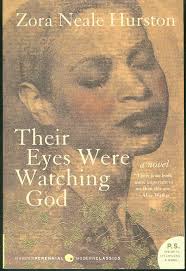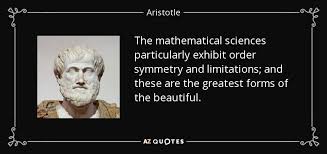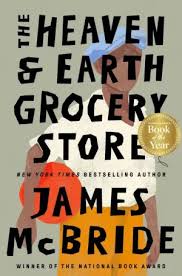What are you reading that isn’t assigned? What is your favorite class? Who is your most inspiring teacher? What are your interests and passions outside of school?
As you might imagine, the modal answer is, “I have never read a book that wasn’t assigned.” Which I certainly understand. I don’t blame a person born in 1902 for not knowing what an airplane is nor do I fault someone who lives in a dark, wet hole in the ground–I know they mean well*—for not having access to the Harry Potter books of which a scant half a billion copies in 82 languages are available. To say nothing of Harper Lee, J. R. Tolkien, J. D. Salinger, Zora Neale Hurston, or Any Tan.
Wait a minute. Come to think of it I do think it’s a shame that reading—which has given so much pleasure to so many people for so many years—has been replaced by social media, violent video games, or possibly AI. If software is writing papers for students, maybe AI is reading books for the kids as well. I’m not sure how that’s going to work out.
Speaking of bad plans, one way to go about counseling aspiring college kids is to opine about how they won’t be admitted anywhere; how their course selection, grades, SAT scores, and extracurriculars are lacking to the point of being pathetic; how the world will stop spinning on its axis if they end up matriculating at Colby (go Mules!) instead of Bowdoin (go Polar Bears!)
My preference is for trying to gain some insight into the subjects about which the students are actually passionate, what they feel is important, what they would like to know more about. That way I can guide them to colleges at which reading books by yourself—as opposed to having a computer do it for you—in and out of class is a thing. I’m told many classes at many colleges still require students to read. Of course I could be wrong about most recent curricular developments.
One of Aristotle’s students is said to have asked him, “how will these triangles and circles profit us?” Aristotle gave him a drachma and replied, “there. Now you have made some money from your learning. Be off with you.”
I am all in favor of knowledge for its own sake. I like the bumper sticker “we still read.” I believe that if you love what you do, you’ll never work a day in your life. An affection for words and ideas is going to go a long way toward being successful in college.
But I also acknowledge that not every high school student is exposed to scintillating curriculum and instructors who care ardently about their subjects. Indeed, some kids attend high schools that are not a perfect match for their individualized needs. I’m not suggesting that all of their teachers are overworked, under paid, and unsupported, or that their jobs are by definition impossible. I will say that some high school teachers and some high schools are better than others.
I’m certainly not throwing a stone at curriculum—nobody loves right triangle trig and logarithms more than this author. It’s just that it is logistically unlikely that each students’ schedule will conform to their interests. I will go on to suggest that some kids—maybe even some of my gracious readers—would not know a cosecant if it appeared suddenly and spat in their rootbeer. So wouldn’t it be great if students could learn that which will be beneficial to them.
I counsel lots of kids who know their grade point averages better than they know the course material. “I have an A in algebra II,” a student told me recently. “Ooh, I love that course,” I replied. “What are you learning, tell me something that you enjoyed.” “To tell you the truth we’re not learning anything,” the student went on. “The math teacher is on maternity leave so we have a coach covering the class. The coach is a history teacher, doesn’t know any math, so we watch action movies every day.” I nodded as the student continued: “But I have an A! That looks good for college, right?”
Rather than pointing out that the pre-calculus curriculum the following year is unlikely to have helicopter crashes on the mid-term, I ask if we couldn’t find a course that would actually be of interest. “But my schedule is full,” my students point out. “I have study hall third period and I’m enrolled in ‘My Friend the Verb’ fifth period and I have ‘Evolution of the Corduroy Suit’ sixth period. I don’t even know how I’m going to fit in ‘Zombies, Then and Now’ next semester.”
While that certainly is a busy schedule, maybe we could find another venue. There are gazillions of online courses. There might be something you’d enjoy, that would be of interest. Maybe–I don’t know–a course that involves reading books.
But how will the colleges know that I’m taking a class not offered at my high school, how will I get credit?
We’ll think of something, I reply.
Without humor or snarkiness, I would argue that it is the responsibility of loving parents to look beyond that which is assigned and to allow their beloved children to learn more—so much more—than the limitations imposed by the school system. An A in a math class in which the students watch explosions is temporary; a love of learning and some actual knowledge will have longer lasting benefits.
Here’s some directed advice for parents: worry less about what is on your child’s transcript—an A grade in a stupid class—and concern yourself more with what is in your child’s head. Encouraging your beloved children to read books in addition to those that are assigned would be an awesome start.
* someone who lives in a dark, wet hole in the ground–I know they mean well. Sorry.








One thought on “Grade A”
Excellent! No matter how extensive our boys’ homework was throughout elementary, junior & high school, every single night ended with reading – either us (parents) or them. Glad to say that reading is a large part of their lives and of their children.